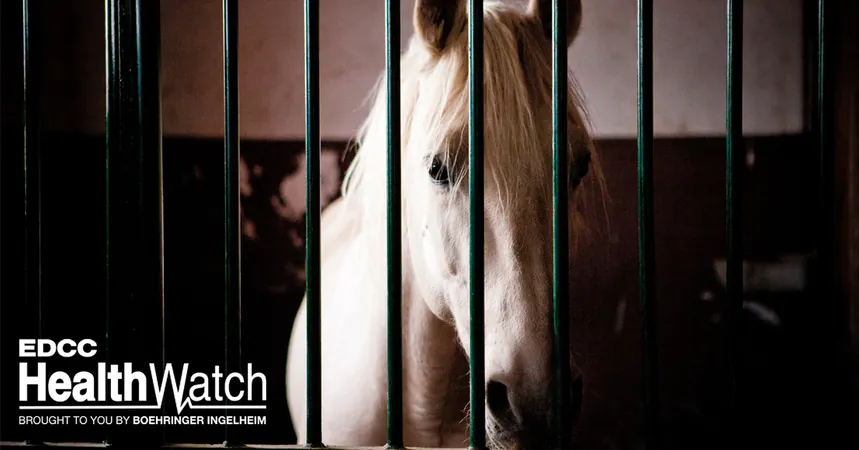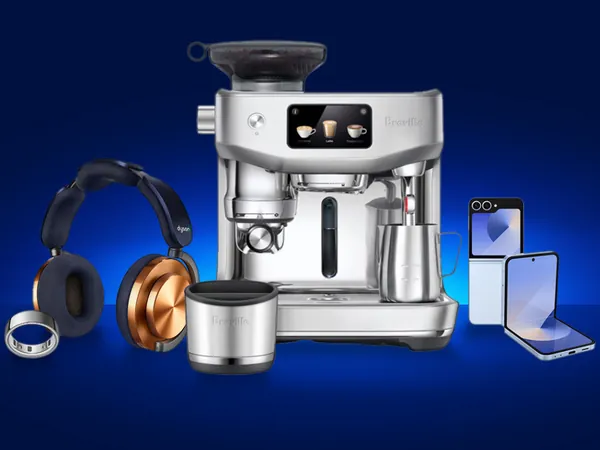
Outbreak Alert: Two Ontario Horses Confirmed with EHV-1 - Here's What You Need to Know!
2024-11-21
Author: Amelia
Outbreak Details
On November 9, alarming reports emerged from a boarding facility in Ottawa, Ontario, where three horses exhibited acute ataxia, a disturbing neurological sign. Among these three, two have tested positive for EHV-1, a highly contagious equine herpesvirus. Fortunately, they are currently recovering under veterinary care.
Adding to the concern, on November 12, a fourth horse displayed similar symptoms, with reports confirming that it is also on the mend. In an effort to contain the potential outbreak, a fifth horse was placed in isolation on November 14, and all remaining horses at the facility are being closely monitored and isolated as a precautionary measure.
Understanding EHV-1
Equine herpesvirus is notorious for infecting horses and can lead to a spectrum of health issues including respiratory problems, fetal loss in pregnant mares, and a severe neurological condition known as Equine Herpes Myeloencephalopathy (EHM). The initial symptoms of EHV-1 are often subtle and may go unnoticed. One of the first indicators can be an unnoticed fever. In youngsters, EHV-1 infection may manifest as a cough, reduced appetite, lethargy, and nasal discharge. Pregnant mares may not show any symptoms until the devastating moment of abortion, which typically occurs late in pregnancy.
When EHM develops, horses may first exhibit a fever and symptoms akin to a respiratory infection. However, within days, serious neurological symptoms such as incoordination, weakness, and even paralysis can follow. In some cases, mares may experience bladder control issues and a significant loss of mobility.
The herpesvirus spreads swiftly through nose-to-nose contact with infected horses, sharing contaminated equipment like bits and buckets, or through human contact—making effective biosecurity practices critical. Regular hygiene protocols should be strictly adhered to at all equestrian facilities to minimize risk.
Prevention Is Key
While current EHV-1 vaccines can help reduce the shedding of the virus, they do not prevent the neurologic form of the disease, making prevention and routine biosecurity measures essential in safeguarding equine health. Experts emphasize that the most effective response to this outbreak is a strong focus on disease prevention.
As the situation unfolds, both horse owners and caretakers are urged to remain vigilant and consult veterinarians for guidance on best practices to protect their horses. Stay tuned for further updates on this developing story to keep your equine friends healthy and safe!









 Brasil (PT)
Brasil (PT)
 Canada (EN)
Canada (EN)
 Chile (ES)
Chile (ES)
 España (ES)
España (ES)
 France (FR)
France (FR)
 Hong Kong (EN)
Hong Kong (EN)
 Italia (IT)
Italia (IT)
 日本 (JA)
日本 (JA)
 Magyarország (HU)
Magyarország (HU)
 Norge (NO)
Norge (NO)
 Polska (PL)
Polska (PL)
 Schweiz (DE)
Schweiz (DE)
 Singapore (EN)
Singapore (EN)
 Sverige (SV)
Sverige (SV)
 Suomi (FI)
Suomi (FI)
 Türkiye (TR)
Türkiye (TR)